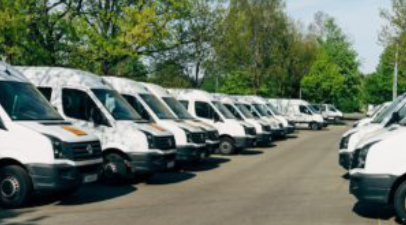|
Fleet management tips that reduce admin and increase safety
The COVID-19 pandemic abruptly caused many industries to slow down significantly, but some those with essential roles to play saw their workloads intensified. Consequently, fleet managers found themselves under great pressure to step things up while overcoming the major challenge of operating safely. Today, months down the line, that pressure remains.
If anything, it’s grown stronger. With staples still vital, ecommerce still booming, and millions of vaccine doses in need of imminent transportation, we need fleets operating more smoothly than ever before. How can fleet managers cope? Here Stevie Nicks provides some tips that should help them lessen their administrative burdens and proceed more safely:
Install reliable telematics systems
Telematics is all about bringing telecommunications and informatics together, making it a vital inclusion for fleet vehicles. Installing telematics systems allows you to automatically gather and transmit data you can use to figure out how things are going (particularly concerning driver performance: when drivers brake, when they accelerate, how smoothly they turn, etc.).
This isn’t something that requires manual effort, either. All you need to do is choose a provider, reach out to get the ball rolling, and arrange the setup process. There is upfront expense involved, but it’s an investment in future performance: the more you know, the more easily you can tweak things.
Provide incentives for safe driving
Drivers are only human, and they will often underperform if they’re not given compelling reasons to do more than fulfil their basic obligations. For the sake of your business and their safety, you need to provide incentives for safe driving (using telematics data to tell you when people are driving unsafely, of course). Figure out the metrics that matter and offer perks or bonuses based on them. Fuel economy is one possibility: if you pay someone more when they drive efficiently, everyone will benefit. Or you can ask everyone to take semi-regular breaks, expecting to see those breaks appear in the data. Drivers who don’t take breaks will put themselves and their vehicles at risk.
Carefully optimise journey planning
One of the most basic mistakes a fleet manager can make is failing to properly plan the required journeys. Now that requirements have become rather more fluid (with places going in and out of lockdown tiers), it can be tempting to forgo planning and just figure things out on the fly. This is a mistake. Planning a journey perhaps with backup routes allows you to cut down on the required miles and save fuel (and driver energy) as a result.
Safeguard the health of your drivers
These are difficult times for everyone and driving all day can be an exhausting job at the best of times. Now that people have COVID-19 to worry about (how it can hurt them, be it directly or indirectly), they can easily struggle with mental health. If you want your drivers to be safe, you need to do more than focus on the stats. You need to focus on the individuals.
Talk to your drivers on a regular basis to see how they’re doing. If someone lets you know that they’re feeling worn down (or it’s clear from their behaviour that they’re not in good shape, even if they won’t outright state it), do what you can to help them get back on track. Maybe you’ll need to give them some time off, raise their pay, or change their schedule. You can’t just give everyone whatever they want, of course, but if you show loyalty then you’ll see it returned.
Stay apprised of industry updates
Large parts of admin are now run through digital systems, which is great for efficiency but there are new developments being worked on all the time, and you need to be aware of this. If a new tool comes out that’s 15% better at planning fuel-efficient routes, then being among the first to take advantage of it will give you a significant edge over your rivals.
And of course it’s imperative to keep up with updates specifically pertaining to COVID-19, because you never know when a new regulation intended to protect drivers or customers will be rolled out and require you to adapt your entire operation. Pay close attention to industry blogs and official news sources (and investigate plausible rumours) and you’ll be in a better position.
|



